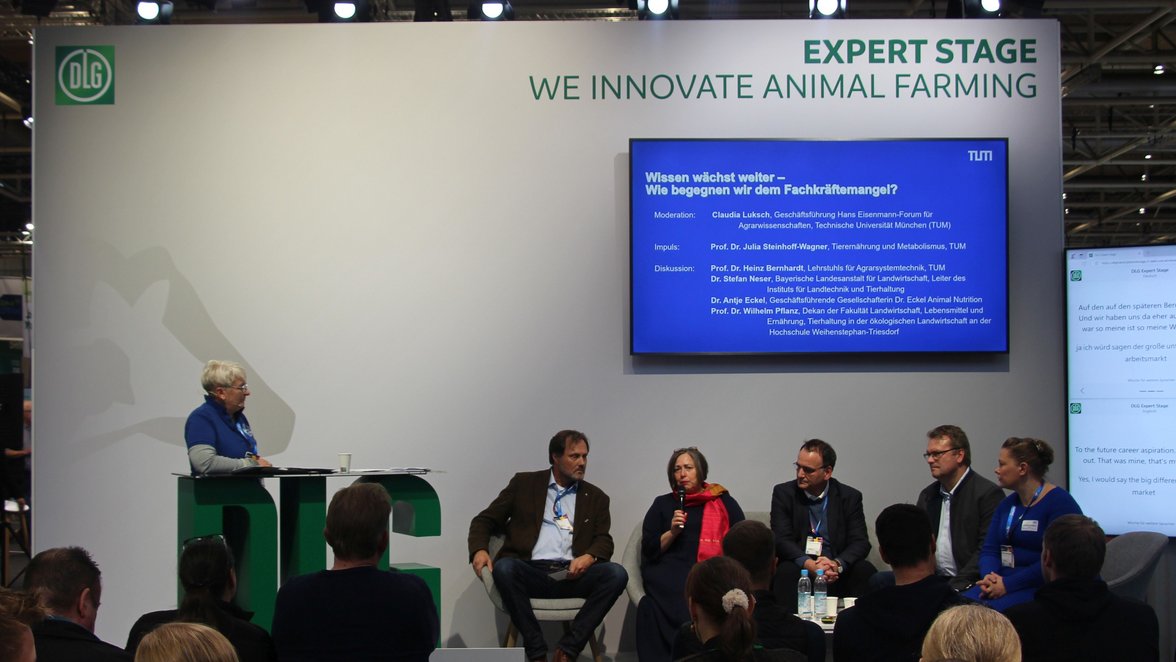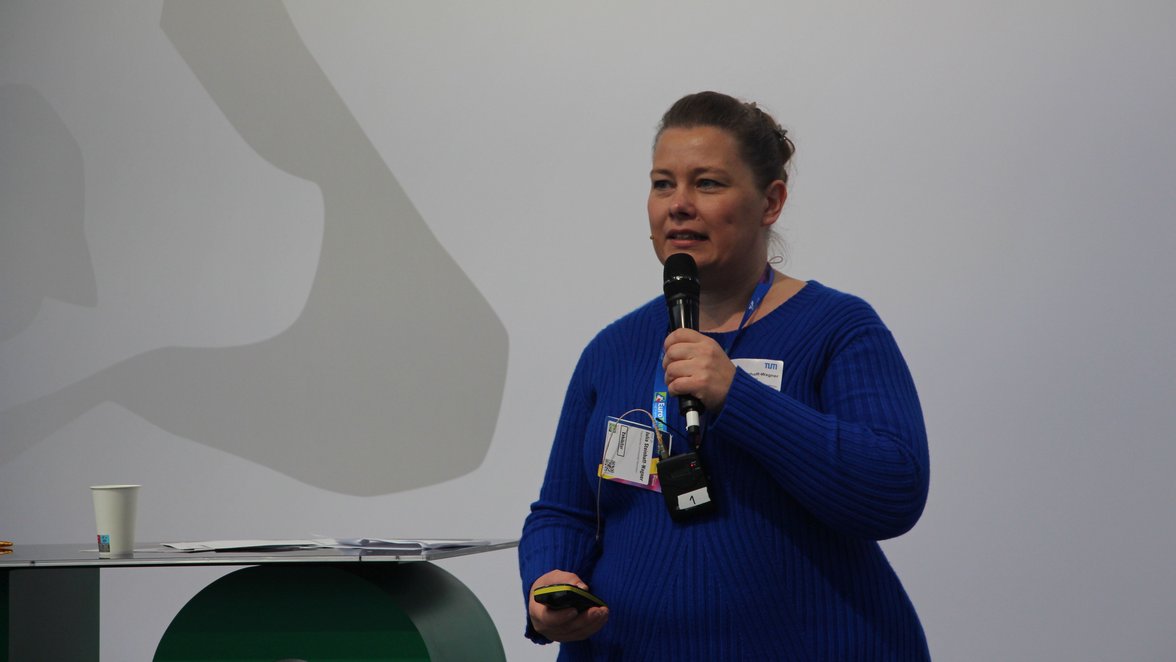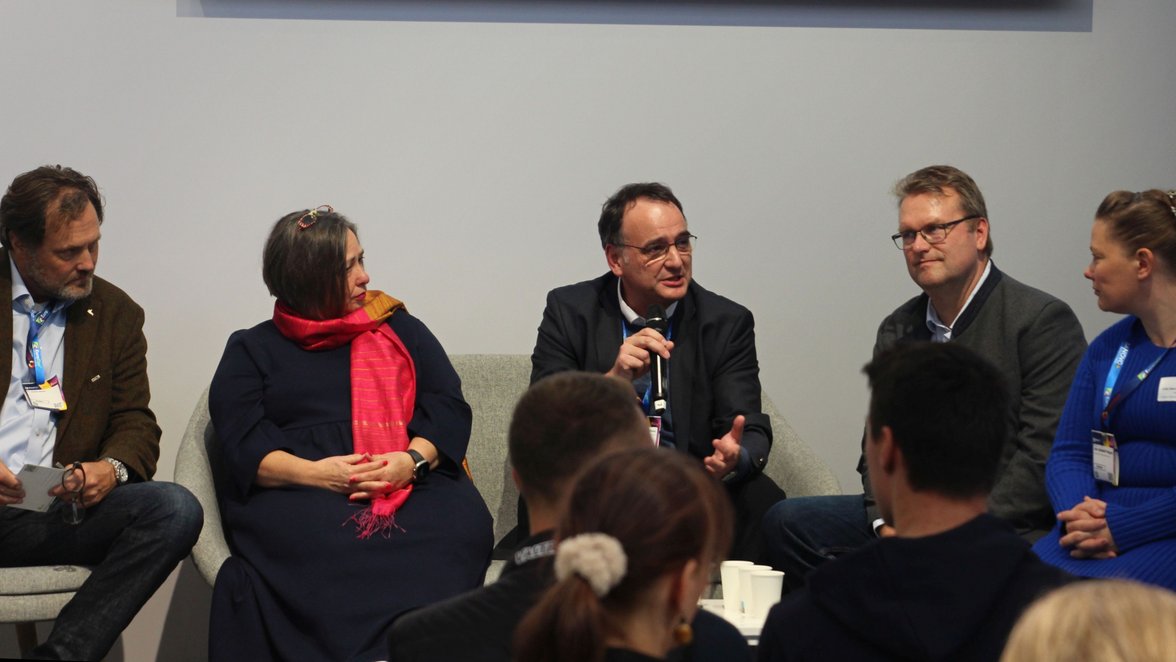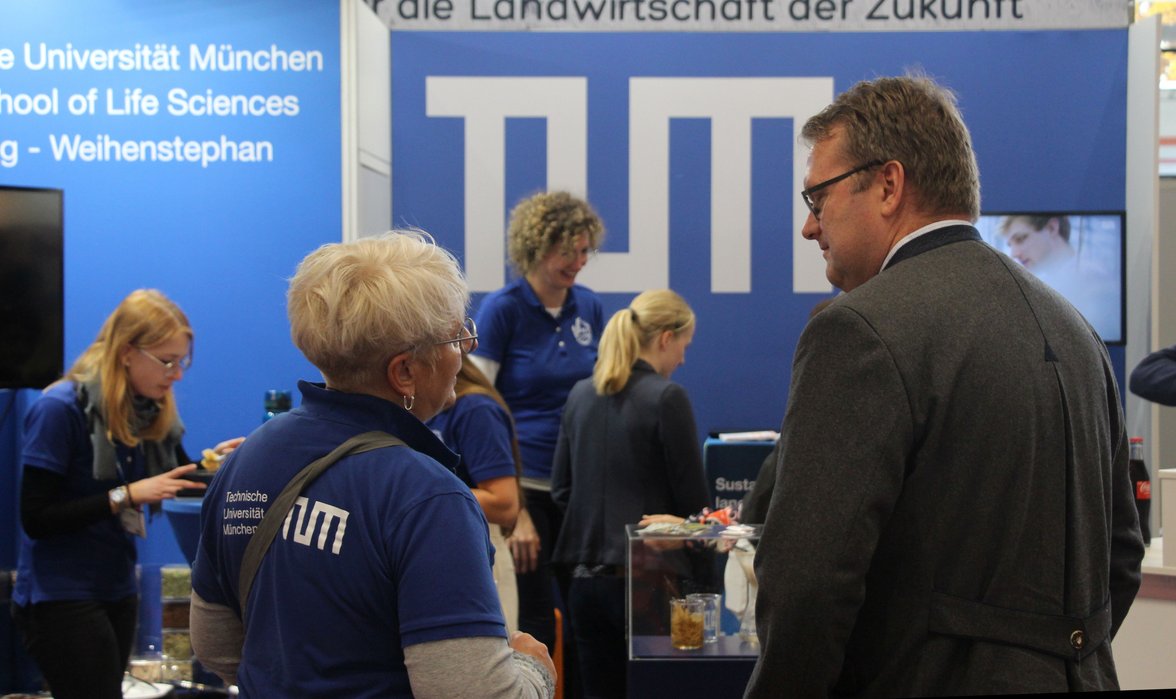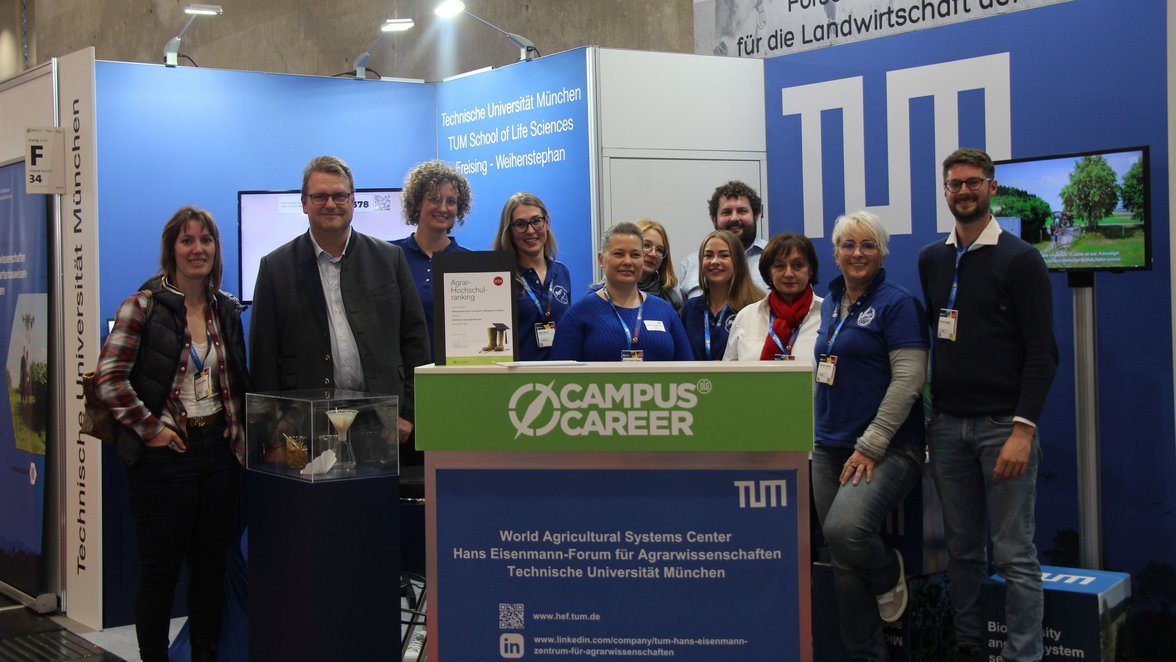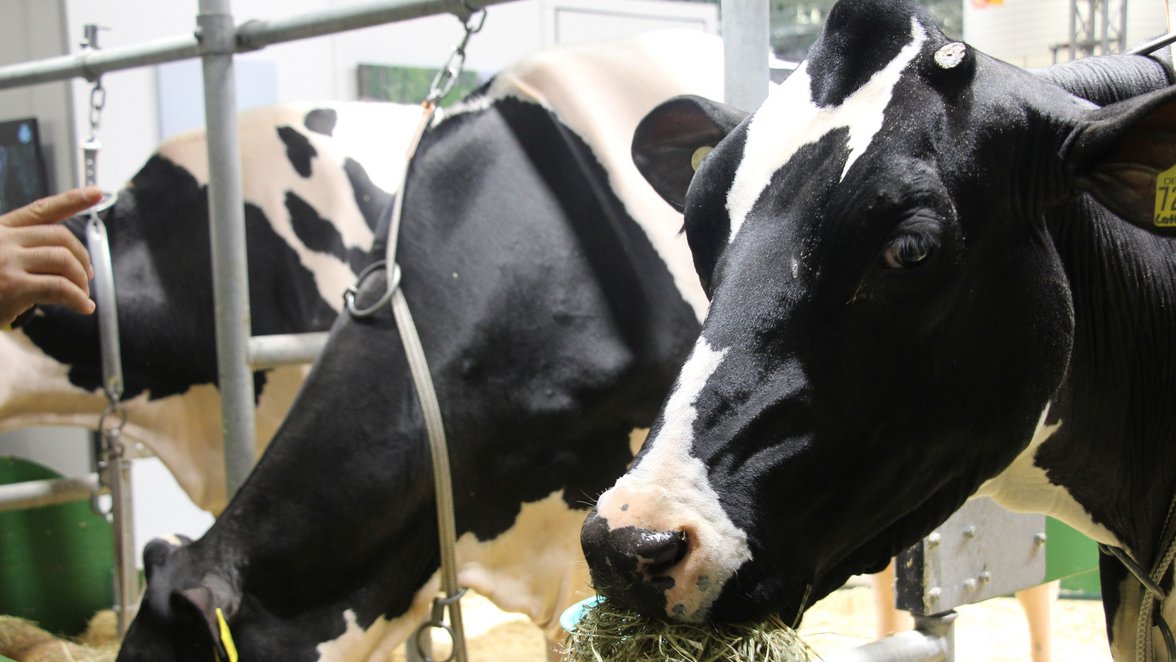TUM at the EuroTier 2024: A glimpse into the future of agricultural sciences
Campus |
The initiative was prompted by the many vacancies for university graduates in the agricultural sector and the comparatively low number of prospective students. The Expert Stage on the future of academic education in agricultural sciences began with a keynote speech by Prof. Julia Steinhoff-Wagner. The reasons for a changed agricultural science landscape today are manifold - the life situation of students, the transformation of universities and the changing labor market are exemplary influencing factors. Agricultural sciences are of high political relevance, but are often overlooked; “agricultural sciences are now in the minority among green degree courses”. According to Prof. Steinhoff-Wagner, what is needed is increased acceptance and visibility in society and politics. “We in the sector must emphasize the systemic relevance of agricultural sciences for nutrition and thus increase motivation to study”. However, a core concern should also be a suitable range of courses - while professorships in agricultural sciences are becoming increasingly specialized, generalists who can convey the systemic nature of agricultural sciences are needed above all in teaching.
Studying teaches more than just subject content
In the panel discussion that followed, the guests also agreed that it is not only the path into agricultural sciences that is made more difficult for students, but that their prospects after graduation are also unclear. Dr. Eckel (Dr. Eckel Animal Nutrition GmbH & Co KG), a TUM alumni and company founder, noted that graduates are expected to have more than just technical content. Intercultural interaction, practical experience and mental agility - topics that are difficult to integrate into a curriculum. “Students need time and opportunity to try things out and gain this experience alongside their studies,” says Prof. Julia Steinhoff-Wagner. Students' financial possibilities, but also university capacities, can stand in the way, as a biology student from the audience reported. Less flexible curricula, fully booked courses and a part-time job to finance their studies mean that students go through their studies quickly, take up few optional courses or allow themselves to drift along guided by their interests, leaving systemic thinking and personal development for management tasks by the wayside. Prof. Heinz Bernhardt can only confirm this with further examples.
Solution orientation and cooperation
In a dialog with a student of agricultural sciences from the audience, the interdisciplinarity of the course is discussed. Prof. Dr. Wilhelm Pflanz (Dean at Weihenstephan-Triesdorf University of Applied Sciences) and Dr. Stefan Neser (State Institute for Agriculture) agree that systems thinking needs to be promoted in order to combine professional competence and practical relevance. Research-oriented teaching could be one approach: “We have to show students that they can become problem solvers in topics such as climate change, biodiversity and animal welfare by studying agricultural sciences,” says Prof. Julia Steinhoff-Wagner.
The Expert Stages showed that agricultural sciences are in a phase of upheaval. In order to make the degree courses fit for the future and attract more young people, it is necessary to modernize the image of the sector, create practice-oriented and interdisciplinary training opportunities and meet the requirements of the job market.
At TUM, these interdisciplinary efforts can also be found in the degree programs, for example in the new Master's program AgriFood Economics, Policy and Regulation. Cooperation should be created in agricultural science education. Cooperation between universities, research institutions and industry should be further strengthened in order to ensure a sustainable education. “In Weihenstephan, we see that this cooperation can work and bear fruit - for students, researchers and industry,” emphasizes Claudia Luksch, Managing Director of the HEF.
Excellent teaching at the TUM
TUM's agricultural sciences were also recognized for their teaching at the fair. In the agricultural university ranking with a survey by top agrar with around 3,800 participating students from 33 universities, teaching in organic farming under the direction of Prof. Kurt-Jürgen Hülsbergen was awarded third place.
Further information
- Further information on the fair: EuroTier 2024
- Panelists:
Prof. Julia Steinhoff-Wagner, Prof. Heinz Bernhardt, Stefan Neser (Landesanstalt für Landwirtschaft), Wilhelm Pflanz (Hochschule Weihenstephan-Triesdorf), Antje Eckel (Dr. Eckel Animal Nutrition GmbH & Co KG) - Moderation: Claudia Luksch
